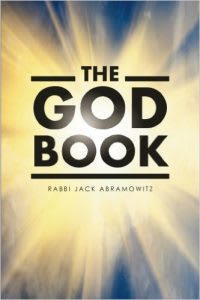6. The Name of God
The articles in this series are based upon ideas expressed in the Rambam’s Moreh Nevuchim (The Guide for the Perplexed). Numbers in brackets represent the book and chapter of Moreh Nevuchim where these ideas are discussed.
All names of God in Tanach are derived from His actions except for one - the name spelled yud-hei-vav-hei in Hebrew. [I, 61] This name is known by numerous other names. In Hebrew, it is called the shem hameforash - the explicit name. In English, it is called the Tetragrammaton (the four-letter name) and the ineffable name (because it cannot be pronounced). There are those (non-Jews) who think that this name should be pronounced "Jehovah" or "Yahweh," but there is no basis for those pronunciations (each of which happens to include a phoneme not native to Hebrew). We Jews pronounce this name "Adonai" ("my Master") in prayer and Hashem ("the name') in conversation. In this series of articles, we will refer to this name by the initials YHVH.
YHVH is the only name used exclusively for God; all other "names" are really common nouns. Other terms used to described God include Dayan (judge), Shadai (almighty), Tzaddik (righteous), Rachum (merciful), Chanun (gracious), and more, none of which is used exclusively for God. Elohim (mighty) is used in other contexts to refer to judges and to angels, among others. Even Adonai, the name we use as a substitute for YHVH, is not limited to God. For example, see Genesis 18:3, where Abraham uses the term "adonai" to address the angels. (The difference between "adoni" and "Adonai," the Rambam tells us, is the same grammatically as the difference between "sari" - "my prince" - and "Sarai," the original name of our matriarch Sarah, the suffix -ai serving as a term of distinction.)
While the meanings of all other names for God are self-evident, the meaning of YHVH is shrouded in mystery. It is believed to be derived from a combination of the Hebrew words hayah/hoveh/yihiyeh (was/is/will be), a reference to God's absolute existence. This name is used in no context other than to refer to God. It was only pronounced in the Temple by the kohanim when blessing the people, and by the kohein gadol on Yom Kippur.
The extreme reverence with which we treat the name YHVH is because this name is reserved for God alone and is not used for any of His creations. When the Torah says "My name," in reference to God, this is the name that is meant.
Other names that we might use to refer to God are imperfect because they suggest that God has attributes, like might or mercy which, as we have discussed, is not in fact the case. The Rambam clarifies that these names are in fact reflections of God's deeds.
We previously discussed how Rabbi Chaninah objected to a congregant ad-libbing praises of God in Shemoneh Esrei. He would have objected even to the basic three terms, "great, mighty and powerful," had these words not (a) been given to us by the Torah and (b) been instituted in Shemoneh Esrei by the Anshei Knesses HaGedolah (Men of the Great Assembly), some of whom were prophets. His objection, Rambam says, would be based on the fact that such terms lead people to conclude (erroneously) that God has attributes. For this reason, the prophet Zechariah promises that in the future, "God will be one and His name, one" (Zechariah 14:9). The meaning of this is that God will only be called by the one name that indicates His essence, and not by any of these other names, which suggest that He has a variety of characteristics.
Pirkei d'Rabbi Eliezer says that before the universe was created, all that existed was God and His name, meaning the name that is exclusive to Him. All other "names" of God only came into existence after He created the universe because they refer to actions that can only be made manifest in a created universe.

